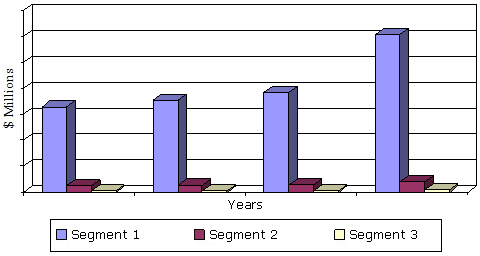Global Smart Glass Market to grow to $5.8 Billion USD by 2020
Posted by MSE Supplies on

Smart glass or switchable glass (also smart windows or switchable windows in those applications) is glass or glazing whose light transmission properties are altered when voltage, light or heat is applied. Generally, the glass changes from translucent to transparent, changing from blocking some (or all) wavelengths of light to letting light pass through.
Smart glass technologies include electrochromic, photochromic, thermochromic, suspended particle, micro-blind and liquid crystal devices.
When installed in the envelope of buildings, smart glass creates climate adaptive building shells, with the ability to save costs for heating, air-conditioning and lighting and avoid the cost of installing and maintaining motorized light screens or blinds or curtains. Most smart glass blocks ultraviolet light, reducing fabric fading; for SPD-type smart glass, this is achieved in conjunction with low emissivity coatings.

The driving factors for the growth of this market include optimal energy saving performance, increasing growth prospects of next generation displays, emerging green building concept, recovering automotive sector, and growing popularity of internet of things.

Critical aspects of smart glass include material costs, installation costs, electricity costs and durability, as well as functional features such as the speed of control, possibilities for dimming, and the degree of transparency.
Major players in this industry include:
SAGE Electrochromics (U.S.), Research Frontiers, Inc. (U.S.), View, Inc. (U.S.), AGC, Ltd. (Japan), PPG Industries (U.S.), Gentex Corp. (U.S.), Hitachi Chemicals Co. Ltd. (Japan), Glass Apps. (U.S.), Pleotint, LLC (U.S.), RavenBrick LLC (U.S.), Scienstry Inc. (U.S.), SmartGlass International Ltd. (Ireland), and SPD Control System Corporation (U.S.).

SPD (Suspended Particle Devices) technology was the biggest segment in terms of market size in 2014:
TSPD glass has significant benefits by its unmatched working capacity to change its light emission property to a desired level. This glass can adjust its light emission property from transparent to dark within 1–3 seconds. SPD technology restricts the UV light up to 99%, providing healthy ambience with sufficient amount of natural light.
SPD glass can provide approximately 50% saving on consumption of energy. The customization and superior working reduces the load of HVAC systems (heating, ventilating, air-condition) of the building. The growth of SPD smart glass is mainly driven by the increase in the demand for energy-efficient and eco-friendly products.
Transportation market segment expected to dominate the smart glass market during the forecast period:
Transportation is one of the major application sectors of smart glass products. In all the means of transportation, smart glass products are used. They are used in the transportation sector in the form of doors, windows, sunroofs, windshields, rear mirror, and skylights. It is used by transport sector to minimize heat build-up, provide shading, limit the viewing scope, and offer privacy to the user.
The automotive sector under transportation segment is the leading consumer of smart glass market products. Many automobile manufacturers include glass material into their vehicle’s designs because of the advantages of smart glasses that are anti-glaring, remote access capacity, and dynamic light emission adjustment property.Share this post
- Tags: Industry - Lithium Battery & Renewable Energy, Products - High Purity Inorganic Chemicals, Products - Lithium Battery Materials & Tools, Products - Powder Processing with Ball Mill Media




